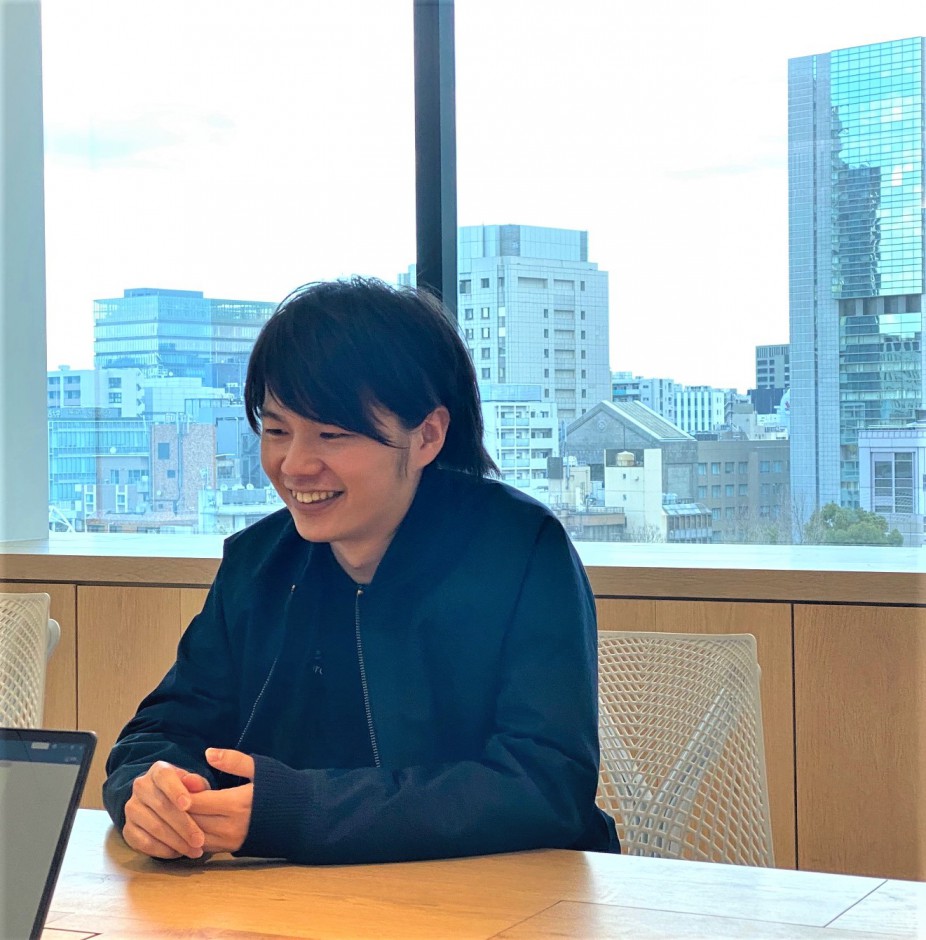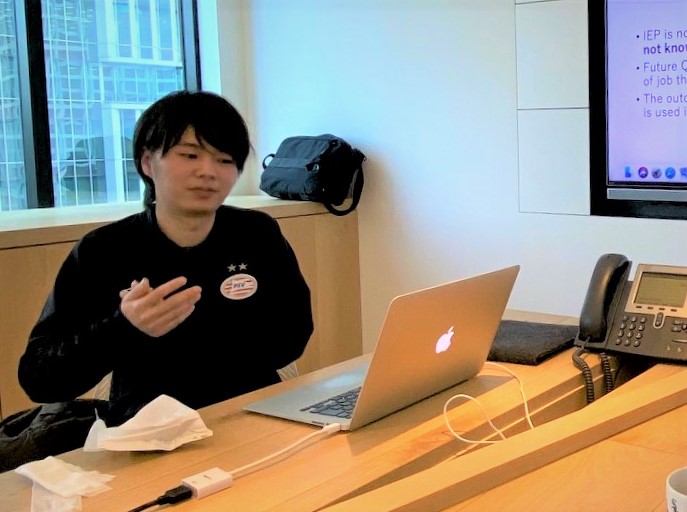プログラム参加者・TOMODACHIアラムナイに聞いてみました!:西村勇輝 氏

今回は、「Building the TOMODACHI Generation: Morgan Stanley Ambassadors Program」2016年に参加したアラムナイの西村勇輝氏へのインタビューです。
TOMODACHIプログラム参加から4年経った現在、西村氏は、筑波大学グローバル教育院エンパワーメント情報学プログラムにおいて、人の生活の質を向上させる工学システムを学び、人の介在が困難な場所で作業を行う移動ロボットの研究を中心に、電動モビリティの開発、さらに、発達障がいのある学生がそれぞれのニーズにあった進学先や就職先を照会できるような検索システムの構築を手掛けています。最近、大学のプログラムで派遣されマサチューセッツ州ボストン市を訪れる機会があったという西村氏に現在のご自身について、またTOMODACHIについて伺いました。
Q1. どうしてTOMODACHIプログラムに参加しようと思ったのですか?
大学でプログラム(Building the TOMODACHI Generation: Morgan Stanley Ambassadors Program)の募集を見た際に、当時関心を持っていた国際協力や国際的なリーダーシップを学ぶ良い機会だと考えたからです。東日本大震災に関しての課題などを具体的に考えながら、日米の学生が共に震災復興への取り組みについて学べるところに魅力を感じました。
Q2. TOMODACHIプログラムに参加した時のことで、今でも忘れられない思い出はありますか?
プログラムでは、各チームごとに「東北復興のアイデア」を企画し、発表する課題がありました。私たちのチームは、防潮堤の壁を使い、プロジェクションマッピングやスクリーンを活用し、映画やスポーツ観戦などで人々を集めイベントを行うという提案で優秀チームに選ばれました。帰国後、チームのアメリカ人学生たちが現地視察のために東北へ招待されることになり、宮城県女川町と気仙沼市を共に訪問することができました。そこで、震災復興に尽力されている地域の方々と交流できたことは今でも忘れられない思い出です。
Q3. ご自身の英語の勉強手法について教えてください。
(TOMODACHIプログラム参加後も)何らかのかたちで、ずっと英語の勉強は続けています。現在、大学院での講義も英語で行われているということもありますが、英語に接する機会は多いです。海外ドラマを見ることが好きなので、英語で聴きながら日本語字幕にしたり英語字幕にして見るように心がけたり、なるべく英語に触れる機会をもつようにしています。
Q4. ボストンでの研修に参加してみてどうでしたか?
私は現在、発達障がいを持つ学生が進路を決める際に必要な学校や就職先の情報のデータベースの収集作成やその検索アルゴリズムの開発に取り組んでいます。今回はそのシステムに関するリサーチのためにこの研修へ参加しました。日本の環境とは違いアメリカでは発達障がいを持つ学生が大学進学できるシステムが整っており、手厚い保護があるということを知る機会となりました。また、マサチューセッツ工科大学(MIT)やハーバード大学など世界中から学生が集まり、高いレベルの研究やそのビジネス化が行われている場を訪れたことで、大きな刺激を受けることができました。
Q5. ボストン滞在中に印象に残ったことは?
「ボストン東スクール」の方々とお会いしお話を伺う機会がありました。この学校の創設者は日本人で、もともと日本で自閉症児を対象とした学校運営をしていたのですが、日本での教育方針をアメリカに持ち込んで成功させたというお話を聞き、そういう日本人がいたということが素晴らしいなと印象に残りました。
Q6. 2020年にやりたいこと。目標はありますか?
これまでの自分の研究に関する論文を学術誌に投稿すること、また、国際学会で発表を行うことが今年の目標です。またに英語の勉強や新しいことへのチャレンジもしていきたいです。
Q7. あなたにとって「TOMODACHI」とは?
気軽にアクセスできるコミュニティで、情報交換のできる友人を持つことができる場だと思います。同じ視点を持つ人たちと仲間になりやすいです。TOMODACHIは、「友達」であり、またチャンスの場でもあります。



